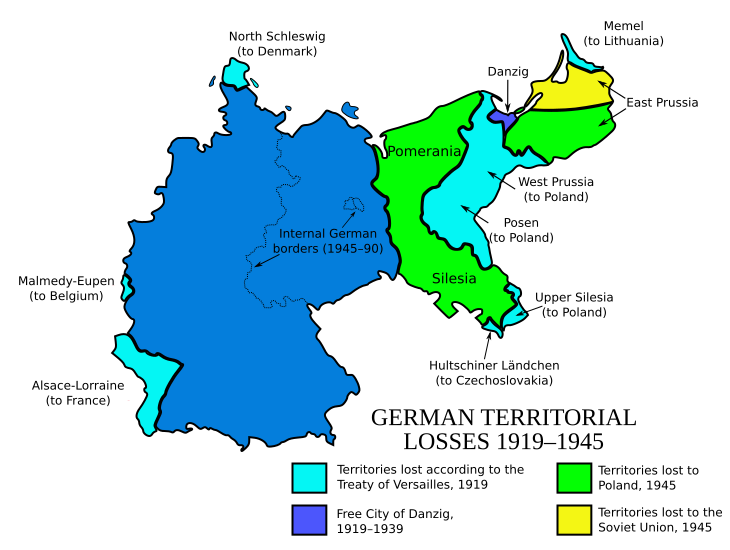Well, I'm not sure I agree entirely with bearfan, but he's got a point about Germany remaining generally intact. The losses to German territory after the Versailles Treaty did not threaten the existence of the German Empire, or the identity of Germany. The only losses that were really painful to the country were Danzig, a major German port on the Baltic, and Upper Silesia, which was a major industrial area. Alsace-Lorraine was definitely a blow to German pride, but for the rest... the large territory of Posen-Westpreußen was mostly rural, agricultural territory, and the only ones whom that really hurt were the Prussian aristocrats who owned most of the land. But not only did they still have a lot of where that came from, but it did not tilt the balance within Germany, and Prussia remained the dominant state.
The territorial re-arrangement of Germany following the Second World War was, however, very different, and changed the identity of Germany in a substantial way. Germany lost major urban centres, vast agricultural and industrial areas and had a good chunk of its population relocated, but the real change that took place, and that was never reversed even after re-unification, was that the political balance within Germany was completely changed. Prussia, which had dominated Germany in every way, ceased to exist forever, urban and rural territories within Germany became much more homogenised, and the many small states were fused to create a smaller number of bigger political entities. I'm not saying these changes were bad, I'm just saying that a member of the military Prussian aristocracy would not have been favourable of that. I don't know how much of that was honestly anticipated by Germans of the time, but it must have been obvious that whatever would happen to Germany after Allied occupation would have put the military aristocracy in a bad situation.

